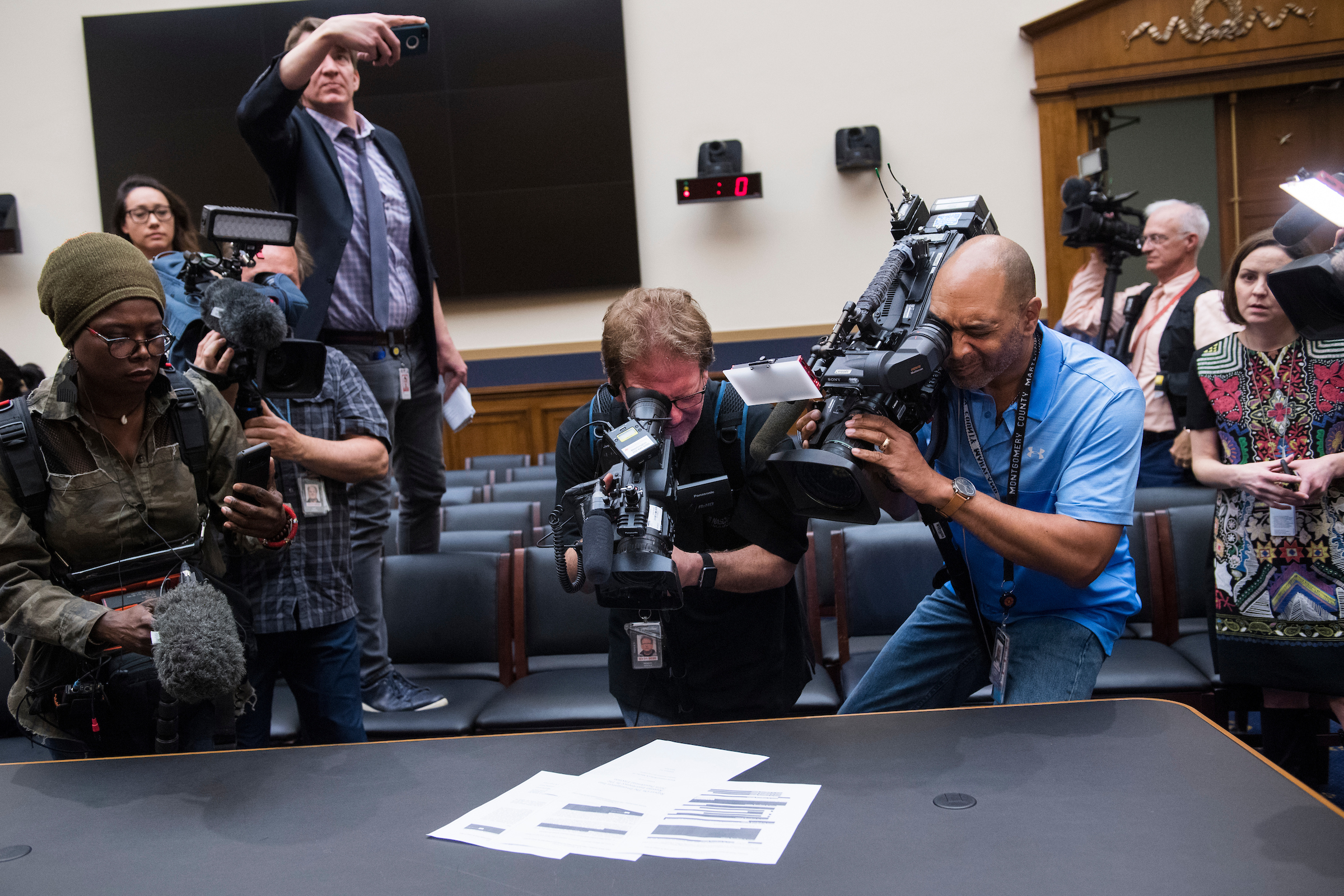Mueller cites ‘fairness’ in reasons not to decide if Trump obstructed justice
Such an evaluation ‘could potentially result in a judgment that the President committed crimes,’ Mueller wrote

Special counsel Robert S. Mueller III lists in his report which of President Donald Trump’s actions his team scrutinized to determine whether the president tried to obstruct justice — enough that they could not rule out that Trump committed a crime.
But Mueller’s team decided they should refrain from deciding whether Trump should be prosecuted because of several factors — including “fairness,” the unique role of the president in government and previous Justice Department opinions that a sitting president could not be indicted.
Such an evaluation “could potentially result in a judgment that the President committed crimes,” Mueller wrote. “Fairness concerns counseled against potentially reaching that judgment when no charges can be brought.”
[Trump ‘Game of Thrones’ tweet: President declares ‘GAME OVER’]
And Mueller apparently wanted to stay out of the way of Congress and potential impeachment proceedings. He wrote that his team determined that a federal criminal accusation “against a sitting President would place burdens on the President’s capacity to govern and potentially preempt constitutional processes for addressing presidential misconduct.”
Still, the episodes in Mueller’s report released Thursday paint the picture of a president bent on stopping investigations, preventing the release of damaging information, and influencing potential witnesses.
Watch: Barr on Mueller report ahead of release: ‘No collusion’
“If we had confidence after a thorough investigation of the facts that the President clearly did not commit obstruction of justice, we would so state,” Mueller’s report states. “Based on the facts and the applicable legal standards, however, we are unable to reach that judgment.”
Among the acts listed in Mueller’s report: Trump cleared the Oval Office to ask former FBI Director James Comey to “let this go” when it came to a probe into former national security adviser Michael Flynn. Trump cited the Russia probe in his reasoning to fire Comey.
[Barr says he has no problem with Mueller testifying before Congress]
Trump demanded former Attorney General Jeff Sessions resign when Mueller was appointed. Trump told his White House lawyer to order the Justice Department to remove Mueller. Trump sent a message to Sessions through an aide to limit the Mueller probe.
The president directed aides not to disclose emails about a June 9, 2016, meeting at Trump Tower between senior campaign officials and a Russian lawyer.
Mueller wrote that the overall pattern of conduct can “shed light on the nature of the president’s acts and the inference that can be drawn about his intent.” After Trump learned he was being investigated, he publicly attacked the probe, made private efforts to control it and encouraged witnesses not to cooperate.
But Mueller and his team stopped short of drawing a conclusion about Trump’s intent — a key element of an obstruction of justice charge — again because of Trump’s unique role in the White House.
“Judgments about the nature of the president’s motives during each phase would be informed by the totality of the evidence,” Mueller wrote.
Some of his actions, such as firing Comey, involve lawful acts within his authority, but that authority also gave him a “unique and powerful means” of influence over people and proceedings, Mueller wrote.
There was no underlying crime of Trump or his campaign workers coordinating Russian election interference, which requires consideration of other possible motives for his conduct, Mueller wrote. And many of the president’s acts took place in public view, an unusual circumstance.
And Trump’s efforts ultimately didn’t work, Mueller pointed out.
“The President’s efforts to influence the investigation were mostly unsuccessful, but that is largely because the persons who surrounded the President declined to carry out orders or accede to his requests,” the report states.





